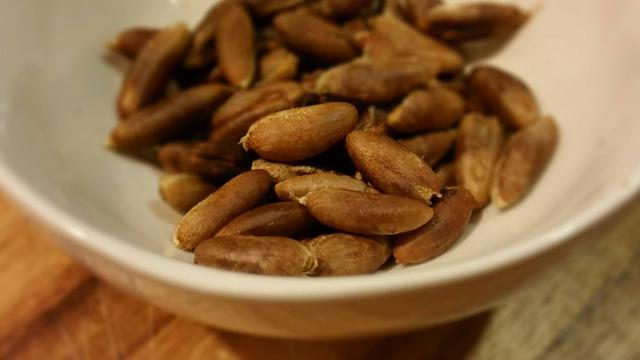Human body is vulnerable to external exposure of antigens from viruses, bacteria, and fungi (infectious diseases), as well as from abnormal growths such as tumors, and degenerative cells. Degenerative diseases and exposure to microorganisms can suppress immunity. Diet habits, fast food consumption could also trigger a decrease in the immune system. Some infectious diseases can be prevented by increasing the body’s immune system and reducing exposure to toxic compounds by using local immunostimulants. Various attempts have been made to improve the response of the immune system, for example the use of immunostimulant drugs. However, this effort is ineffective because many chemical compounds in drugs cause side effects, while many drugs also have immunosuppressive effects or suppress endurance. Therefore, herbal therapy is considered as a solution to this problem, especially the use of dates Phoenix type dactylifera L. Dates contain a lot of phenolic compounds and antioxidants that are believed to stimulate the immune system. Chlorogenic acid, pelargonin, and ferulic acid found in dates can significantly reduce the number of immunoglobulin E (IgE) cells in allergic events.
As the largest country with muslim population in the world, the consumption of dates in Indonesia is very high; however, dates are usually discarded. Dates seeds contain many active compounds in the form of antioxidants, such as phenolics, which can reduce levels of free radicals based on anti-inflammatory and immunostimulatory activity. The date palm diet has been found to improve the performance and response and antioxidant status of the immune system in broilers. However, the use of date palm seeds to improve one’s health status needs to be further investigated. Flavonoids in dates increase antioxidant levels and increase lipid profile. The essential compounds in date palm seeds are considered to function as immunostimulants which enhance the immune system, although the exact mechanism of this immunostimulation is unclear. Tumor necrosis factor (TNF-α), glutathione (GSH), and gamma interferon (IFN-γ) are required for binding of antigens in inflammatory or inflammatory reactions. Therefore, we conducted a study aimed at evaluating the effect of date palm seeds on the immune system with trials in mice.
This study has an experimental laboratory design with pre and post tests with a control group. Dates used are Deglet nour (Phoenix dactylifera L.) which are processed through the stages of washing, drying, roasting and chopped using a blender to become a fine powder. Male Wistar rats, aged around 2-3 months and weighing from 150 to 200 g were used in the experiment. The mice were acclimatized for one week and placed in separate cages according to their experimental group. All animals have access to food and water (ad libitum) and the 12/12 hour cycle (light / dark) is maintained. All animal experiments are carried out according to standard protocols for animal studies.
Thirty mice were involved, with five mice per group: negative control (NC), positive control (PC), 1 g / kg T1 treatment dose, 3 g / kg T3 treatment dose, 5 g / kg T5 treatment dose, and healthy control (HC). Before treatment, all groups (except the HC group) received one dose of CCl4. A total of 1 g CCl4 was diluted with 5 mL olive oil and then given to mice with 2 mL / kg. Date palm seeds are given for 14 days. A total of 14 g (for T1), 42 g (for T3) and 70 g (for T5) powdered dates are mixed with 42 mL of hot water and left overnight. This mixture was then filtered, and 3 mL of the filtered mixture was given to each rat every day for 14 days. The PC group received dexamethasone 0.5 mg / kg. GSH, TNF-α, and IFN-γ were examined by an enzyme-linked immunosorbent assay (ELISA) kit (BTLaboratories, Shanghai) according to the manufacturer’s protocol, using an ELISA Reader machine (Labotrone, Germany). Normally distributed data were analyzed using ANOVA followed by the smallest post-hoc difference test (LSD) for a comparison between the mean values with a significant level of 5%.
The results of this research indicate that CCl4 induction decreases GSH and IFN-γ and increases TNF-α. Giving date palm seeds increases GSH and IFN-γ, but decreases TNF-α. The findings of this study are important regarding the potential use of date palm seeds as an anti-inflammatory compound. This research will help researchers in the future to explain the mechanism of action behind the anti-inflammatory effects of date palm seeds.
Author: Ferry Efendi
Detail information from this research can be seen in:
http://www.herbmedpharmacol.com/Article/jhp-4316
Saryono, S., Taufik, A., Proverawati, A. and Efendi, F., 2019. Dietary supplementation of Phoenix dactylifera L. seeds decreases pro-inflammatory mediators in CCl4-induced rats. Journal of Herbmed Pharmacology, 8(3). doi: 10.15171/jhp.2019.31





